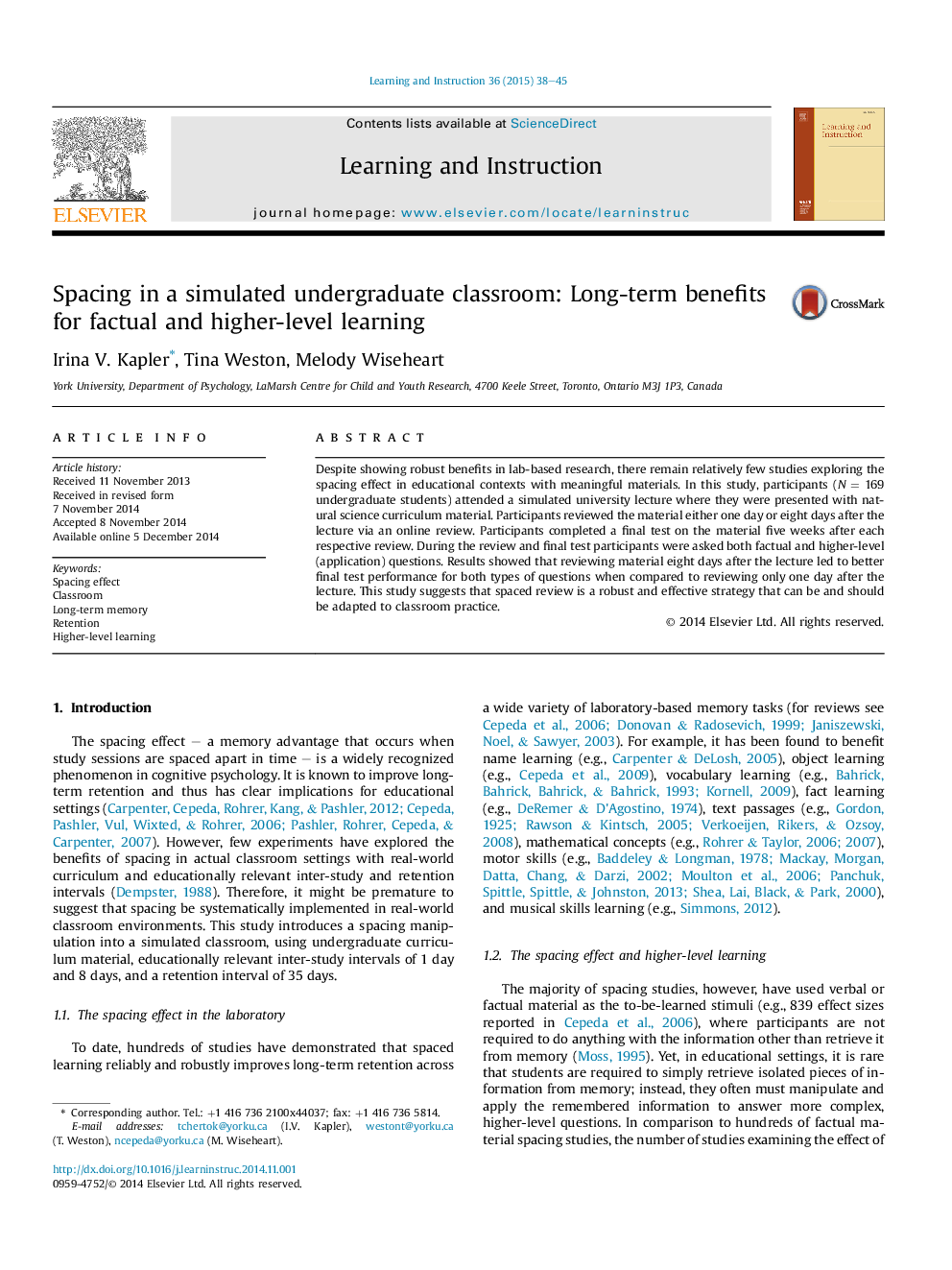| Article ID | Journal | Published Year | Pages | File Type |
|---|---|---|---|---|
| 365544 | Learning and Instruction | 2015 | 8 Pages |
•Students listened to a lecture and reviewed it either 1 or 8 days after learning.•Five weeks later, 8-day condition students outperformed 1-day students.•Spaced review improved students' memory for both simple and higher-level material.•Spacing benefit found for items that were not explicitly reviewed.
Despite showing robust benefits in lab-based research, there remain relatively few studies exploring the spacing effect in educational contexts with meaningful materials. In this study, participants (N = 169 undergraduate students) attended a simulated university lecture where they were presented with natural science curriculum material. Participants reviewed the material either one day or eight days after the lecture via an online review. Participants completed a final test on the material five weeks after each respective review. During the review and final test participants were asked both factual and higher-level (application) questions. Results showed that reviewing material eight days after the lecture led to better final test performance for both types of questions when compared to reviewing only one day after the lecture. This study suggests that spaced review is a robust and effective strategy that can be and should be adapted to classroom practice.
